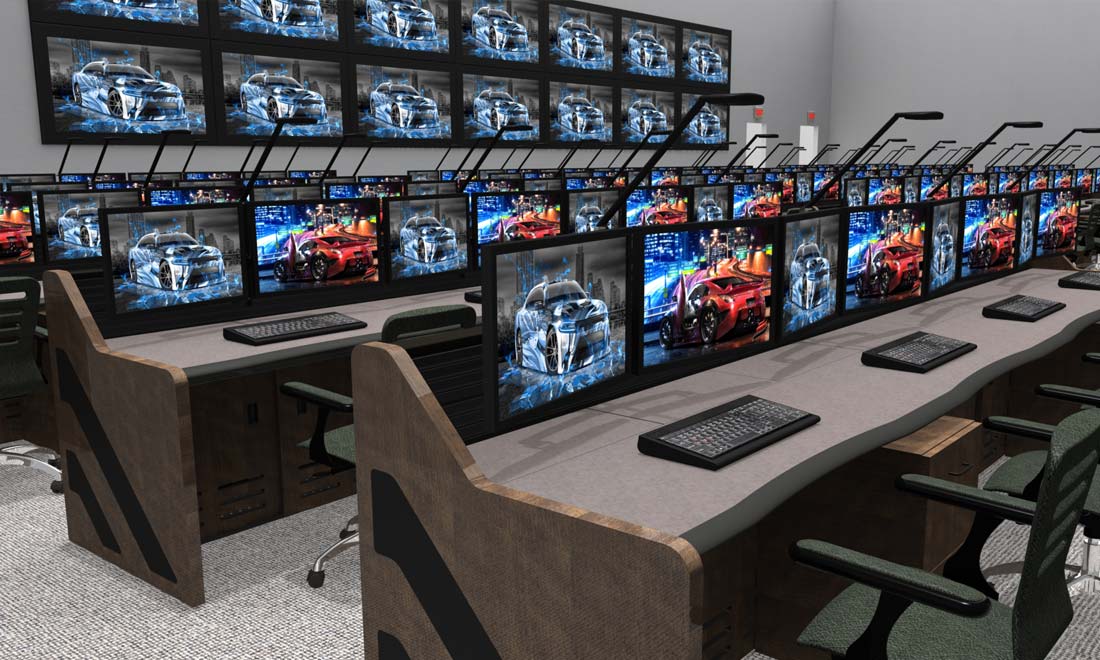With the latest job report from the Bureau of Labor and Statistics, it looks like the job market in America is in pretty good shape. 312,000 jobs were added in December 2018 and the unemployment rate rose to just under 4%.
Nonetheless, there are still plenty of folks looking for control room operator jobs and plenty of companies looking for qualified candidates ready to grow with their enterprise.
In this article, we’ll examine the current outlook for control room operators and related careers. This information is clearly of use to those of you looking for employment opportunities, but it can also be a good idea for management to stay on top of current employment trends.
Let’s start with the basics.
What Does a Control Room Operator Do?
There are lots of different kinds of control rooms (we’ll get to that later), so we’ll just focus on power plant control room operations here, but many expectations are applicable across industries:
- Not surprisingly, the primary duty for a control room operator is to control power-generating equipment.
- Read, and record values from various monitoring instruments.
- Interpret numbers to identify possible malfunctions or out of range readings.
- Check equipment for proper functioning.
- Change controls as needed to maintain proper levels.
- Monitor emissions.
- Turn generators and other vital equipment off and on as necessary.

Control room operators—not just at power plants, but in a variety of industries—are vital to keeping our nation’s economy moving.
What Kinds of Control Rooms Are There?
Police Control Rooms
- Operate as command hubs for police activity.
- Facilitate communications between headquarters and patrolmen.
- Including control room monitoring jobs
Process Control Rooms
- Used to monitor industrial manufacture of goods.
- Used to monitor technological processes (cyber-security, social media)
- Process control room operator jobs
Mining Control Rooms
- Facilitate oversight of mine operations.
- Coordinate communication in cases of emergency.
Broadcast Control Rooms
- Facilitates direction of broadcast.
- Facilitates transmission of broadcast signal.
This is a short list of control room industries, to learn about other types refer back to our previous in-depth articles on several control room categories.
What can a control room operator expect to make?
The median annual salary (according to the BLM) is $75,000. On the low end, operators can earn $45,000/year; while high end earners can make $100,000 or more per year.
A majority of jobs in this sector offer medical, dental, and vision insurance with only 10% of jobs offering no insurance coverage.
Entry level jobs in the field are often better compensated than entry level positions in related fields.
What kind of training do control room operators need?
Requirements will differ between industries, so we will focus again on power plant control room operation just to give a general idea of the kind of training that could be necessary.
Power plant operators are normally required to complete extensive training at the job site. Sometimes operators will need as much as 3-5 years of relevant training for a given position.
Power plant operators are often recruited from the ranks of equipment operators and adjacent jobs with relevant on-site experience.
Control room operators will often require more formal training off-site to learn governmental codes, standards, and regulations. For instance, nuclear power plant operators need to pass a licensing exam from the United States Nuclear Regulatory Commission.
Do control room operators have to be licensed?
Various industries will have their own licensing standards or lack thereof. But as an example, nuclear plant control room operators will need to pass a plant operations exam yearly. Additionally, they are required to pass bi-annual medical exams. Other industries (such as emergency services control room operators) might require similar exams and certifications. Control room operation is often tied up with workplace safety and emergency protocols.
What else do I need to know?
There are too many specific details to list them all here. The best way to find out exactly what your are getting yourself into is to speak with someone with real-world experience in the type of control room you are interested in working in.
That said, control room operator work generally requires those who can focus on tasks for long periods of time without having their concentration broken. If you have trouble sitting still, this might not be the career for you.
One of the most commonly mentioned traits that employers look for in a control room operator is the ability to think critically. Many control room jobs require gathering information and coming up with unique solutions to any problems that arise.
There are enough industries and types of jobs under the umbrella of “control room operator” that this is far from an exhaustive list. Make sure to keep reading here for more information on this and other topics in the future.
For more information, visit Inracks or call us at 800-346-7521.







